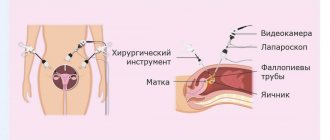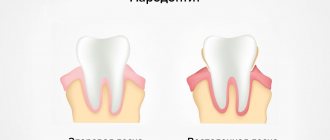Residents of large cities spend their lives in constant motion. Commuting to work, shopping, sports training, errands, worries. Calories, energy, and vitamin reserves are wasted to maintain an urban lifestyle. Stress, diets, snacks on the run become constant companions of the urban man in the street. The consequence is a lack of various nutrients, including a lack of vitamin B6.
B6 is otherwise called pyridoxine. This is a water-soluble substance that is synthesized in the human intestine and comes with food. It is found most in grain sprouts, nuts, herbs and vegetables. The vitamin is also found in meat and dairy products, but a significant amount is lost during heat treatment.
The role of vitamin B6 in the body
Pyridoxine is essential for the body of adults and children. The need varies depending on age and gender. The daily norm is presented in the table.
| Category | Age group, years | Requirement per day, mg |
| Children | 1 | 0,5 |
| 1-3 | 0,9 | |
| 4-6 | 1,3 | |
| 7-10 | 1,6 | |
| Men | 11-18 | 1,8 |
| 19-59 | 2,0 | |
| More than 60 | 2,2 | |
| Women | 11-18 | 1,6 |
| 19-59 | 1,8 | |
| More than 60 | 2,0 | |
| Women during pregnancy and breastfeeding | — | 2,2 |
In the human body, vitamin B6 acts as a cofactor - an element necessary for enzymatic reactions through which metabolic processes occur. The functions of pyridoxine are as follows:
- participation in the creation of amino acids from which protein molecules are built;
- production of neurotransmitters, substances that transmit information between neurons - serotonin, adrenaline, norepinephrine, dopamine, gamma-aminobutyric acid;
- stimulates metabolic processes, helps to lose excess weight;
- reduces the amount of cholesterol and lipids, preventing the development of heart failure;
- normalizes blood glucose levels;
- reduces the risk of kidney stones, has a diuretic effect;
- has a rejuvenating effect due to the production of succinic acid and norepinephrine, which enhance cellular energy exchange;
- maintains the stability of the nervous system through the synthesis of serotonin and gamma-aminobutyric acid;
- takes part in the creation of the hemoglobin molecule, synthesizing the protein siderophilin, which performs a transport function for iron;
- enhances the liver’s ability to cope with toxins;
- stimulates the production of antibodies to protect the body from infections;
- improves the condition of the skin, hair, nails.
Now Foods, B6, 50 mg, 100 tablets
344 rub.
More details
Functions of vitamin B6
- participates in redox processes and the work of coenzymes - substances that regulate the work of other substances;
- prevents nervous disorders and skin diseases
- slows down the aging process;
- reduces muscle spasms, cramps, numbness;
- helps reduce the need for insulin - regulates the amount of sugar in the blood;
- promotes the synthesis of tryptophan, a precursor to serotonin, a substance that affects mood.
Signs of Deficiency
A lack of vitamin B6 can cause hypovitaminosis. This is a painful condition that occurs when more vitamin is consumed than is supplied and synthesized in the body. As a result, the available reserves are not enough for the full functioning of organs and systems. Hypovitaminosis proceeds sluggishly, the signs are not too bright, so it may not be immediately noticed. Symptoms of vitamin B6 deficiency:
- the appearance of chronic fatigue syndrome;
- increased irritability, disruption of sleep and rest patterns, depression;
- decreased immunity;
- disruption of the normal functioning of the skin, manifested by dermatitis, seborrhea, dryness;
- the occurrence of stomatitis, redness and swelling of the tongue, cracks in the corners of the mouth;
- disruptions in the gastrointestinal tract;
- tingling and numbness in the legs and arms;
- anemia.
Symptoms of long-term deficiency
Hypovitaminosis caused by vitamin B6 deficiency is more common than vitamin deficiency - a complete absence of a substance in the body, a deficiency for a long period. Symptoms of vitamin B6 deficiency with vitamin deficiency are more striking and immediately noticeable. The patients' condition is more serious. Pyridoxine deficiency is most difficult for young children:
- the occurrence of seizures is noted;
- a deficiency can cause retardation in physical and mental development;
- food digestion processes are disrupted;
- the child is capricious, sleeps poorly;
- inflammation and irritation occur on the skin.
In adults, vitamin B6 deficiency is also severe. The manifestations are persistent and long-term therapy is needed to eliminate the consequences. Symptoms of long-term vitamin B6 deficiency in adults:
- dyspeptic manifestations - nausea, vomiting, bloating, flatulence, diarrhea;
- insomnia, depression, exposure to stress;
- frequent colds and infectious diseases;
- allergies;
- alopecia;
- inflammation of the mucous membranes of the eyes, mouth;
- skin diseases;
- peeling and dry skin in the area of the nasolabial triangle;
- neuritis;
- decrease in intellectual abilities.
Vitamin B6 deficiency
With a lack of vitamin B6:
- proteins and fats are poorly digested;
- there is loss of appetite, nausea, drowsiness, irritability;
- dry skin appears, especially around the eyes, cracks in the corners of the mouth;
- hair fall out;
- insomnia, depression, conjunctivitis, stomatitis, inflammation of the oral mucosa occurs.
Vitamin B6 is necessary for the absorption of vitamin B12, as well as the formation of compounds with magnesium. This is important for the functioning of the nervous and musculoskeletal systems.
If you feel a lack of vitamin B6, include these three dishes in your diet:
- beans stewed with mushrooms;
- salad with tuna and fresh vegetables;
- cream of broccoli soup.
| Service | Price | Price | Promotion Price |
| Appointment with a therapist | primary 1800 rub. | repeat 1500 rub. | |
| Neurologist appointment | primary 1800 rub. | repeat 1500 rub. | free after MRI of the spine |
| Orthopedist appointment | primary 1800 rub. | repeat 1500 rub. | free after MRI of the joint |
| Consultation with an acupuncturist | primary 1800 rub. | repeat 1500 rub. | free after MRI of the spine |
| Vertebrologist consultation | primary 2000 rub. | repeat 1800 rub. | |
| Consultation with a chiropractor/osteopath | primary 2500 rub. |
| Service | Price according to Price | Discount | Discount |
| Plasma therapy of the spine or joint | 1 session 4000 rub. free doctor's appointment | 3 sessions 10,500 rub. free doctor's appointment | 5 sessions 17,500 rub. free doctor's appointment |
| Classic acupuncture session | 1500 rub. | ||
| Complex acupuncture session | 2000 rub. | ||
| Pressopuncture session (combination of massage and acupuncture) | 1 session 1500 rub. free doctor's appointment | 3 sessions 4200 rub. free doctor's appointment | 5 sessions 6500 rub. free doctor's appointment |
| Manual osteopathy session | 2500 rub. | ||
| Manual therapy session | 2500 rub. | ||
| Autohemotherapy | 550 rub. | 5 sessions 2500 rub. | 10 sessions 5000 rub. |
| Novocaine therapeutic blockade | 1500 rub. | ||
| Therapeutic paravertebral blockade | 1500 rub. | ||
| The blockade is therapeutic and medicinal, complex (use of several drugs) | 2000 rub. | ||
| Therapeutic intra-articular blockade with diprospan | 2500 rub. | ||
| Joint puncture with removal of synovial fluid | 2500 rub. | ||
| Intra-articular injection of hyaluronic acid (without the cost of the drug) | 2000 rub. | ||
| Novocaine therapeutic blockade | 1500 rub. | ||
| Therapeutic paravertebral blockade | 1500 rub. | ||
| Therapeutic intra-articular blockade with diprospan | 2500 rub. | ||
| Joint puncture with removal of synovial fluid | 2500 rub. | ||
| Pharmacopuncture session (drug at the discretion of the doctor) | 2500 rub. | ||
| Pharmacopuncture session (without the cost of the drug) | 2100 rub. | ||
| Electrophoresis session (without the cost of the drug) | 400 rub. | ||
| Phonophoresis session / Ultrasound therapy procedure (UT) (without the cost of the drug) | 450 rub. | ||
| Magnetic therapy session | 350 rub. | ||
| SMT therapy session (Sinusoidal modulated currents) | 450 rub. | ||
| Vitamin therapy (10 injections) | 4000 rub. free doctor's appointment | 3000 rub. free doctor's appointment | 3000 rub. free doctor's appointment |
| Injections (Vitamins B12) | 800 rub. | 800 rub. | 800 rub. |
| Intravenous administration of drugs | 450 rub. | 5 sessions 2140 rub. | 10 sessions 4050 rub. |
| Intravenous drip administration of drugs (without drugs, 1 bottle) | 800 rub. | 5 sessions 3375 rub. | 10 sessions 6750 rub. |
| Intravenous drip administration of medications (with existing clinic medications, 1 bottle) | 950 rub. | 5 sessions 4050 rub. | 10 sessions 8100 rub. |
| Intravenous drip administration of drugs (without drugs, 2 bottles) | 950 rub. | 5 sessions 4050 rub. | 10 sessions 8100 rub. |
| Intravenous drip administration of medications (with existing clinic medications, 2 bottles) | 1100 rub. | 5 sessions 4700 rub. | 10 sessions 9400 rub. |
| Subcutaneous/intradermal administration of drugs | 250 rub. | 5 sessions 1180 rub. | 10 sessions 2250 rub. |
| Intramuscular administration of drugs | 300 rub. | 5 sessions 1430 rub. | 10 sessions 2700 rub. |
Author: Telegina Natalya Dmitrievna
Therapist with 25 years of experience
>
Consequences
A lack of vitamin B6 leads to various consequences:
- Peripheral neuropathy. Characterized by sensory disturbances, numbness, and muscle weakness. In severe cases, coordination of movements and sense of balance are impaired.
- Formation of oxalate stones in the kidneys. This is due to the fact that oxalic acid, in the absence of pyridoxine, binds to calcium, forming stones.
- Hypochromic anemia. Decrease in the amount of hemoglobin in the red blood cell.
- Leukopenia is a decrease in the level of leukocytes in the blood.
- Fatty degeneration of the liver.
- Degenerative changes in the nervous system. They are characterized by the gradual death of neurons, leading to various pathological conditions.
- Increased levels of homocysteine, which damages blood vessels and nerves.
Properties (functions)
Pyridoxine promotes:
- Normalization of metabolic processes, enzyme reactions.
- Production of blood cells, hemoglobin, hormonal substances.
- Regulation of protein and glucose absorption at the cellular level.
- Maintaining smooth liver function.
- Increasing brain and physical performance.
- Preventing memory problems.
- Improving psycho-emotional state.
- Strengthening the nervous system.
- Improvement of skin health.
- Prevention of obesity, diabetes, diseases of the organs of vision, heart, blood vessels, diseases accompanied by inflammatory processes.
- Normalization of cholesterol levels.
Causes of deficiency and excess
Vitamin B6 deficiency occurs due to various reasons:
- unbalanced diet;
- old age, when the natural synthesis of pyridoxine is disrupted;
- pregnancy, during which the need for the substance increases;
- taking hormonal contraceptives;
- liver pathologies;
- disruption of B6 production in the intestines due to various diseases - dysbiosis, malabsorption, infections, parasites in the intestines;
- use of anti-tuberculosis drugs;
- antibacterial therapy;
- stressful conditions;
- constant drinking of alcohol, smoking;
- poisoning with toxic substances;
- increased work of the thyroid gland;
- congenital pathologies of pyridoxine absorption.
Excess occurs in cases of long-term use of high doses of the drug to treat diseases. Doctors prescribe higher dosages in cases where vitamin deficiency is accompanied by various pathologies that interfere with the absorption of pyridoxine. Excess may also occur if a high dose is accidentally ingested at one time.
Causes of vitamin deficiency
Accordingly, the following factors lead to vitamin deficiency.
Nutritional factors. Here we can highlight:
- predominant consumption of foods in which vitamins are present in insufficient quantities and are absent altogether;
- malnutrition. Passion for fasting and other “folk” methods of weight loss often cause hypovitaminosis;
- excess sugar consumption;
- culinary processing or storage conditions that contribute to the destruction of vitamins in foods. The diet must include fresh fruits and vegetables;
Digestive disorders, in particular:
- defects in the mechanisms of vitamin absorption;
- dysbiosis – a disruption of the normal microflora in the intestines (for example, as a result of an infectious disease or antibacterial therapy);
- activation of pathogenic microflora;
- intestinal parasites;
Factors that affect the body as a whole and suppress the immune system. This is, first of all:
- unfavorable environmental conditions (increased background radiation, ingestion of heavy metals, pesticides and other highly toxic substances);
- alcohol abuse;
- smoking;
Uncompensated increased need for vitamins. The body requires more vitamins than usual when:
- pregnancy and breastfeeding;
- stress;
- significant physical activity;
- work in low temperature conditions, etc.
Deficiency diagnosis
Vitamin B6 deficiency is diagnosed based on the collection of anamnestic data. The patient's diet, concomitant diseases, and symptoms of deficiency are studied. Particular attention is paid to concomitant dysbiosis and other intestinal pathologies.
At the second stage, clinical analysis studies are carried out. Check the content of hemoglobin, leukocytes, homocysteine in the blood. Precipitation of oxalate salts is examined in urine.
At the third stage, high-performance liquid chromatography is prescribed. A special blood test to determine the amount of B6. The collection is made from a vein. To obtain an objective result, the patient must fulfill several conditions:
- do not eat food 8 hours before the test;
- drink only non-carbonated clean water;
- stop smoking 30 minutes before the procedure;
- stop taking corticosteroids, anticonvulsants, and vitamin medications.
Chromatography is highly accurate and allows you to reliably determine the amount of vitamin in the body.
Eliminating shortages
Vitamin B6 deficiency can be eliminated with the help of dietary foods rich in pyridoxine:
- nuts – pine, walnuts, hazelnuts;
- chicken and beef liver;
- fish - tuna, mackerel, sardine;
- legumes - beans;
- sprouted grains;
- sea buckthorn.
Severe conditions are corrected by taking drugs with pyridoxine. Vitamin injections or tablet forms may be prescribed. The course of treatment and dosage is determined by the attending physician.
Preventive actions
In order to avoid a deficiency of pyridoxine in the body, you should take a rational approach to nutrition. You need to eat porridge, fresh juices, liver, and nuts. But thermal exposure reduces the concentration of vitamin B6. There are folk tips for cooking:
- do not use frozen vegetables and fruits, because the concentration of pyridoxine is halved;
- use broths when cooking meat and fish, because the vitamin goes there;
- To preserve more nutrients, use steam treatment of products.
If you have your own ways of preserving vitamins, please share your tips.
Another preventive measure is maintaining a healthy lifestyle. Quitting alcohol and nicotine helps reduce pyridoxine consumption. Psychological training to increase stress resistance can help. In winter and spring, preventative courses of taking multivitamins, which include B6, are useful.
Vitamins are an essential component of human health. Deficiency is easy to avoid if you are careful about your diet. At the first signs of deficiency, you should consult a doctor who will help you adjust your diet and prescribe the necessary supplements to eliminate the problem. But it must be remembered that excess is just as dangerous as shortage .










